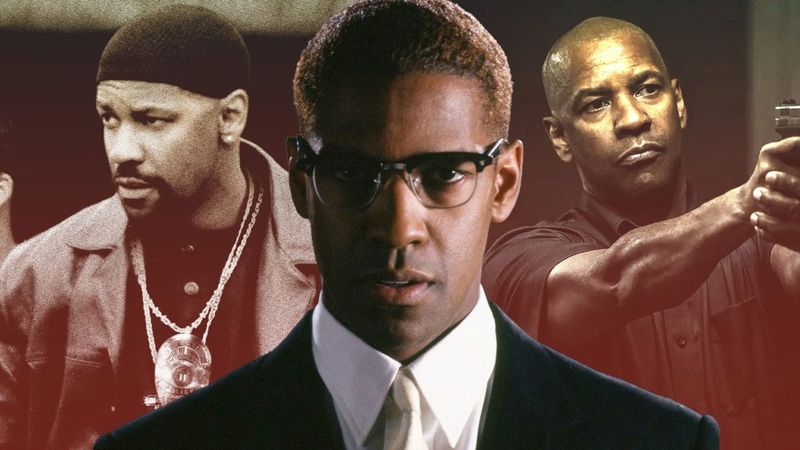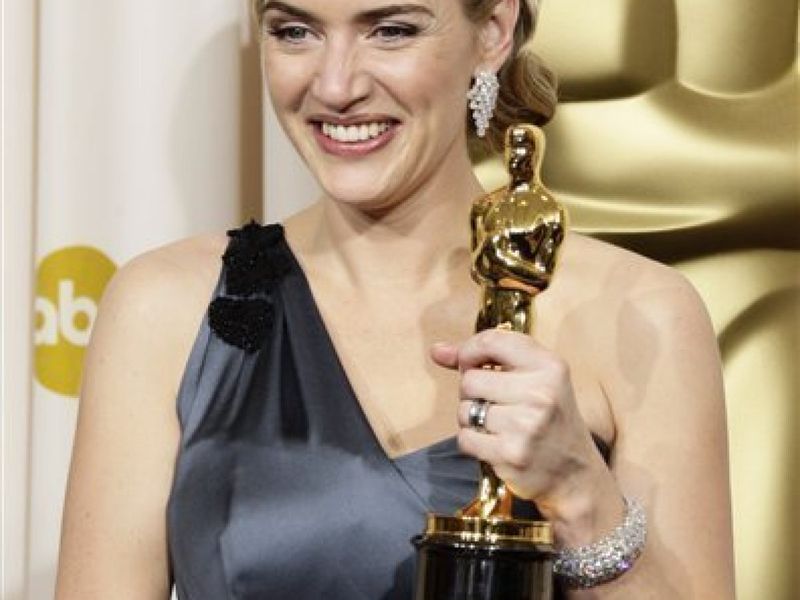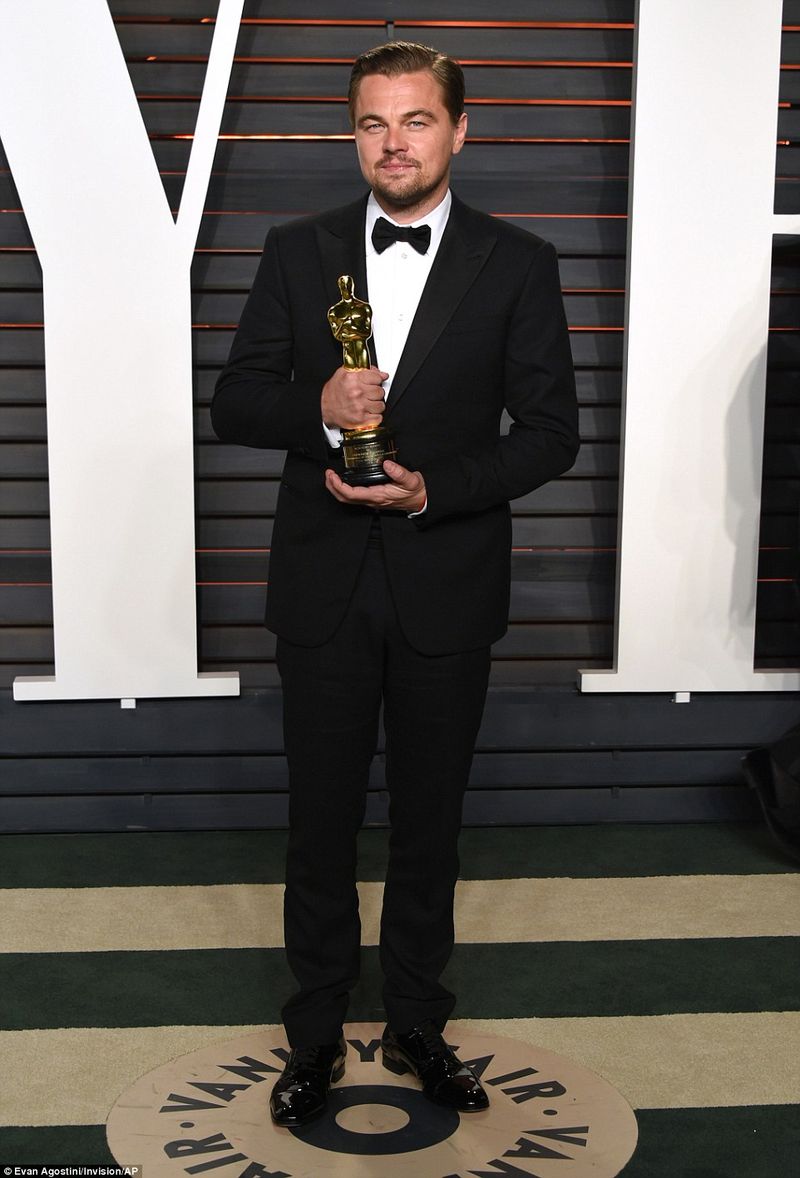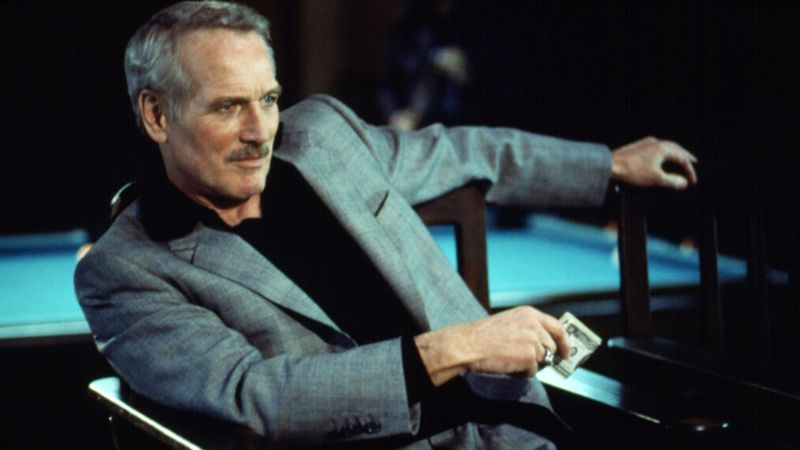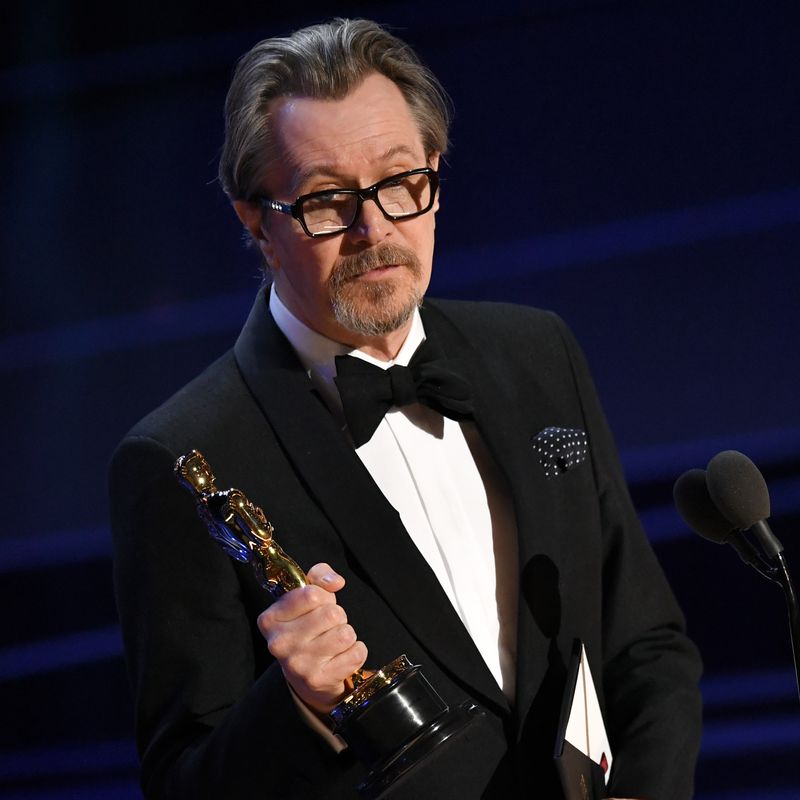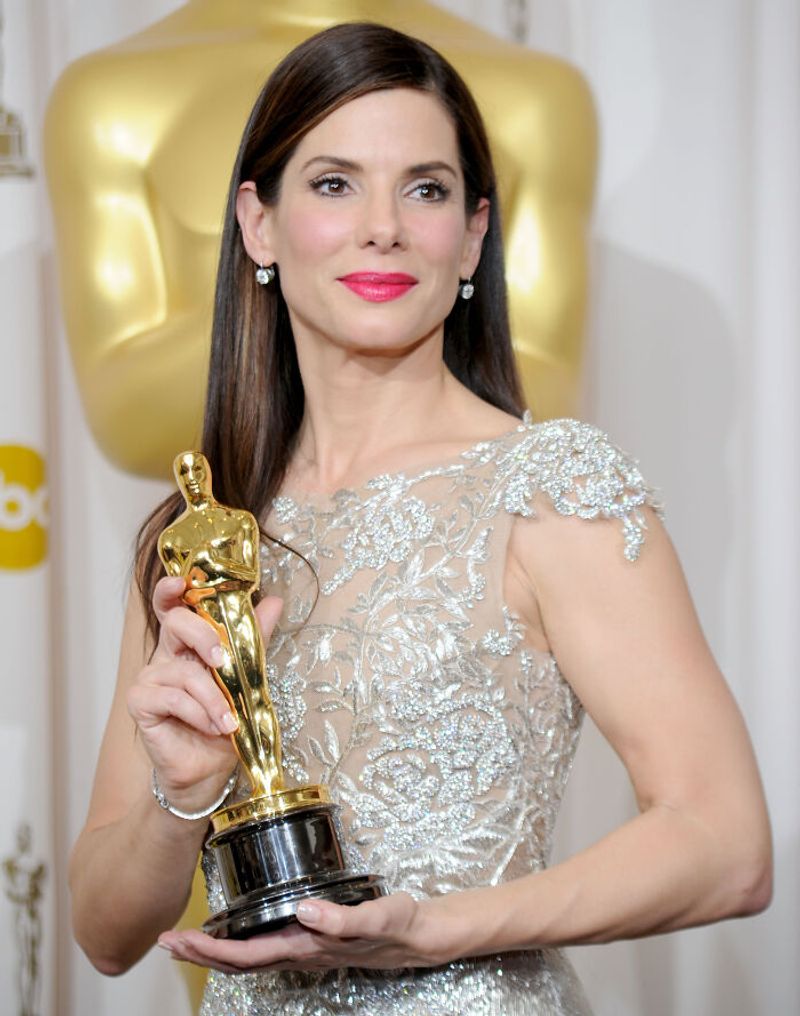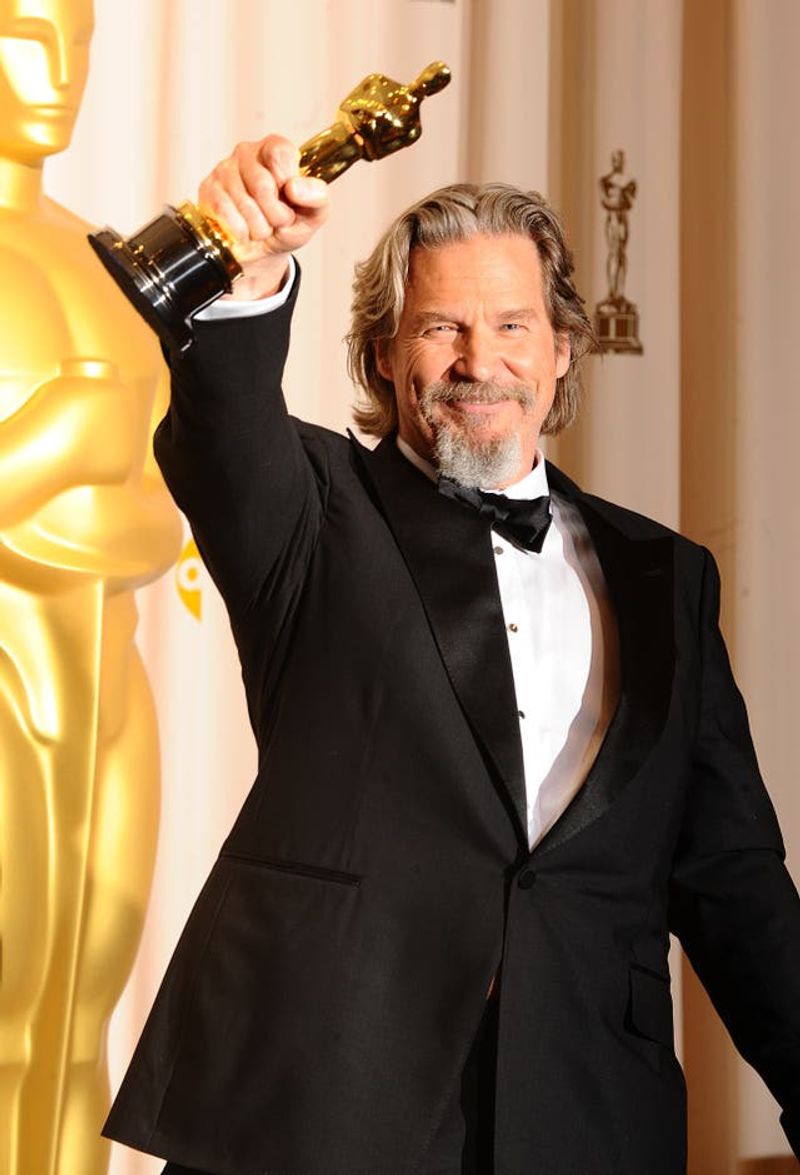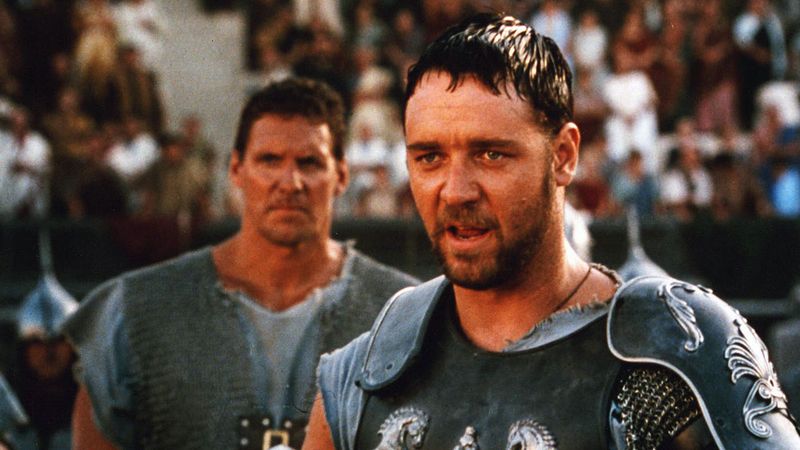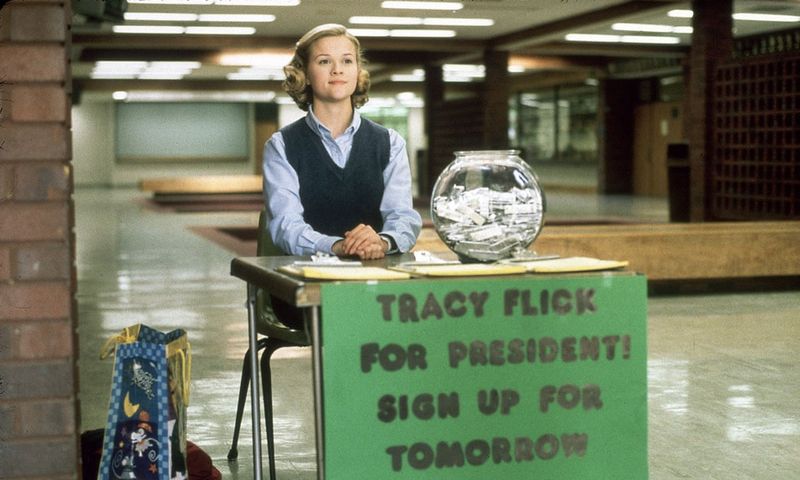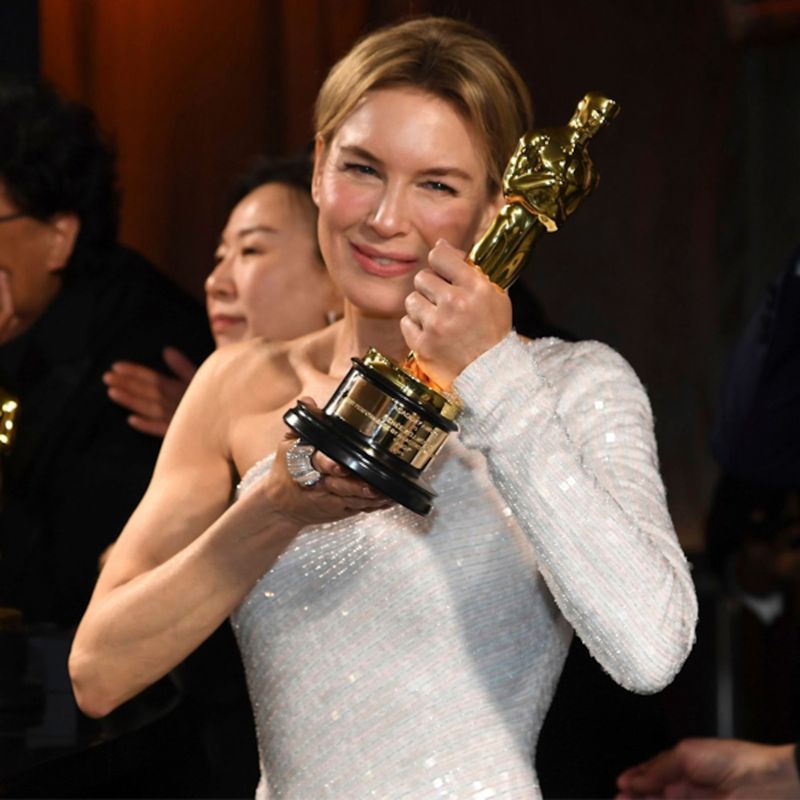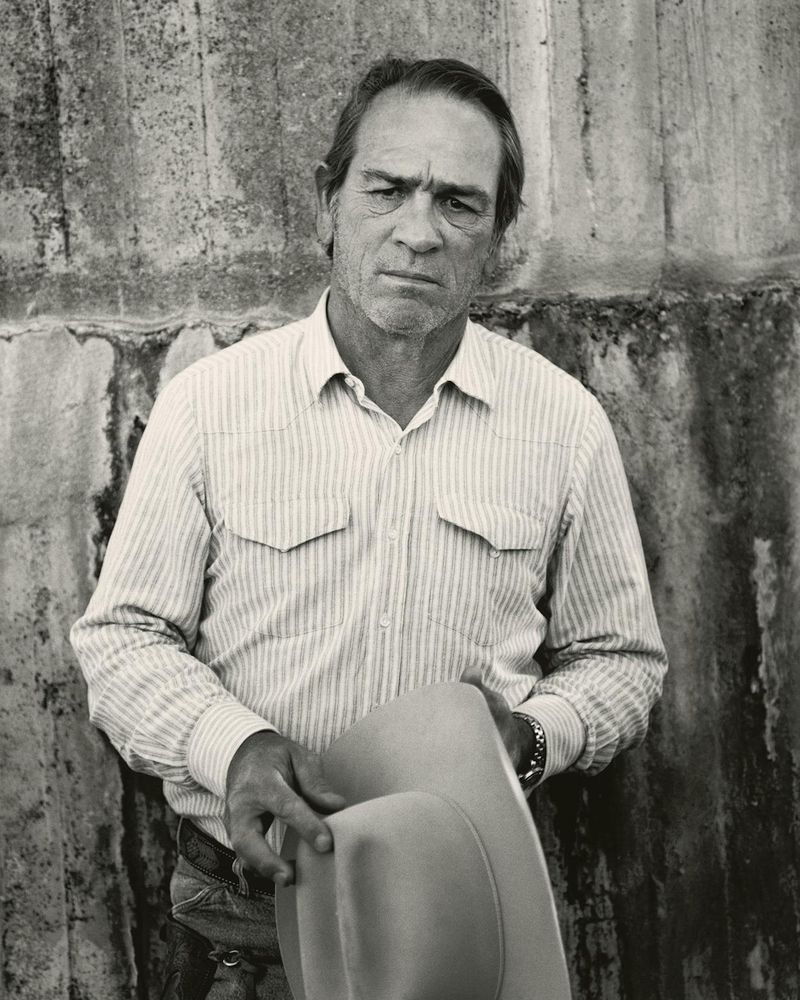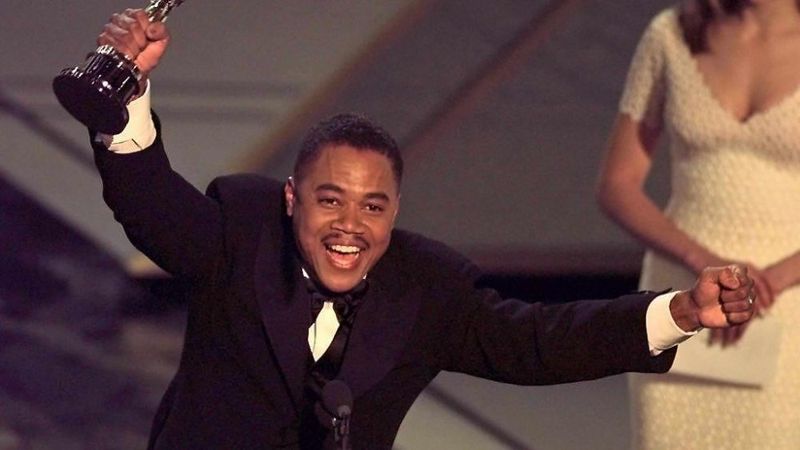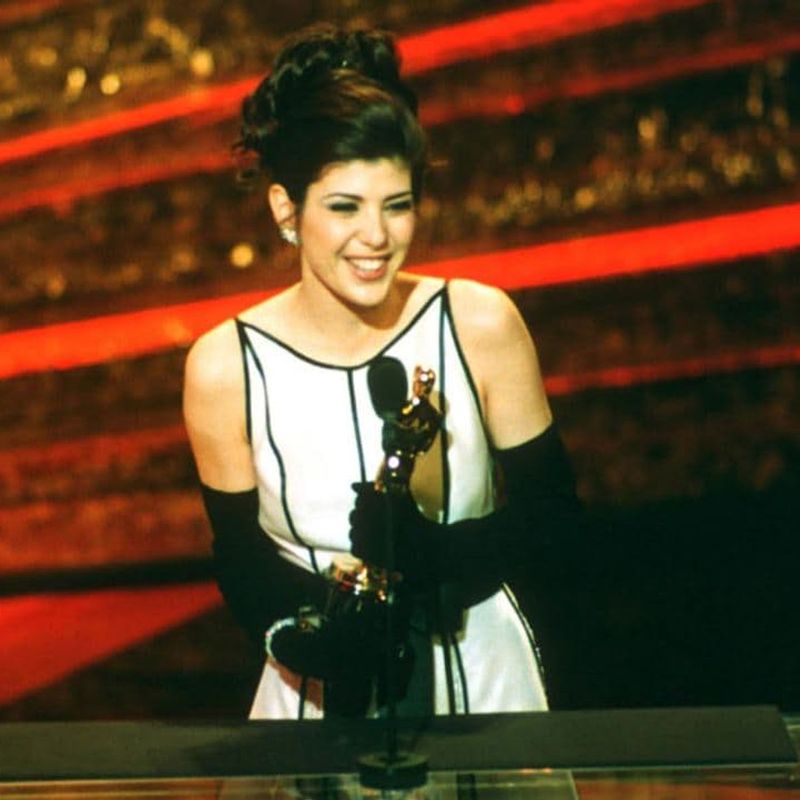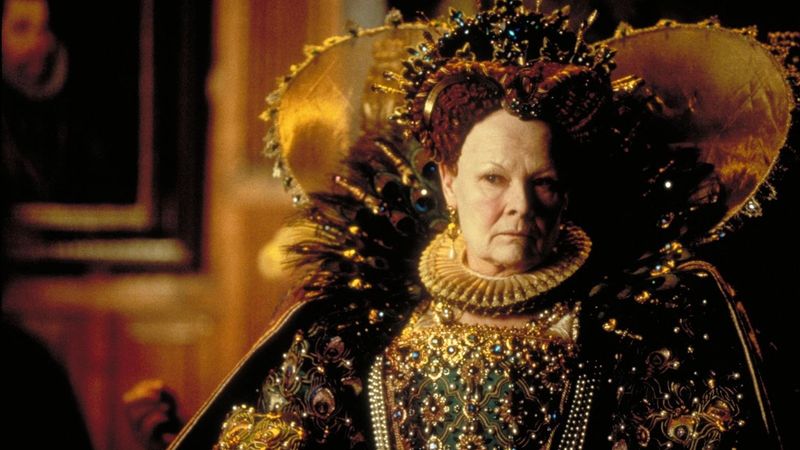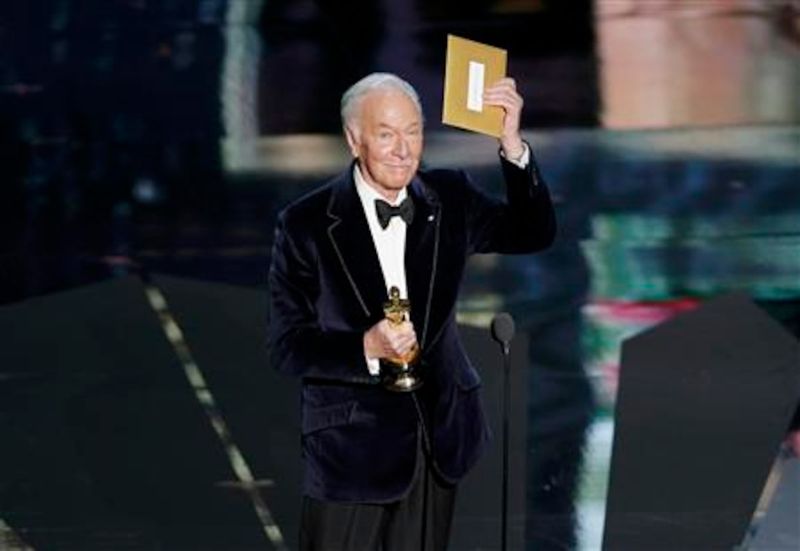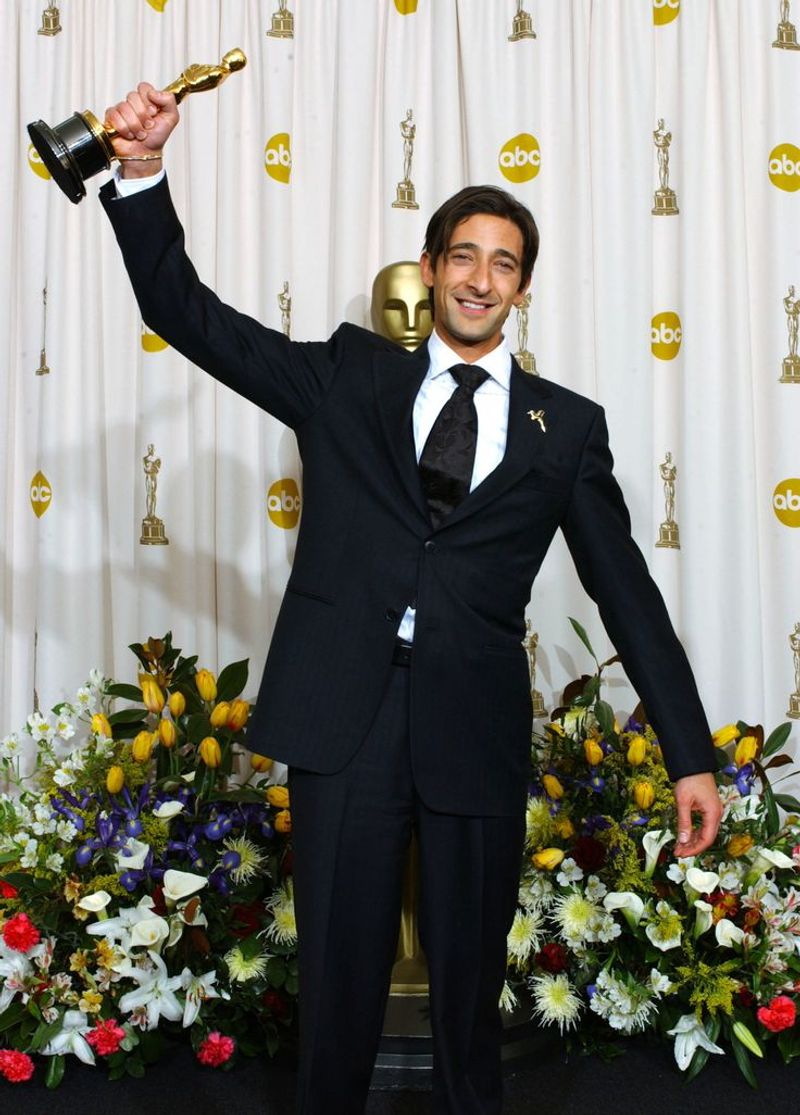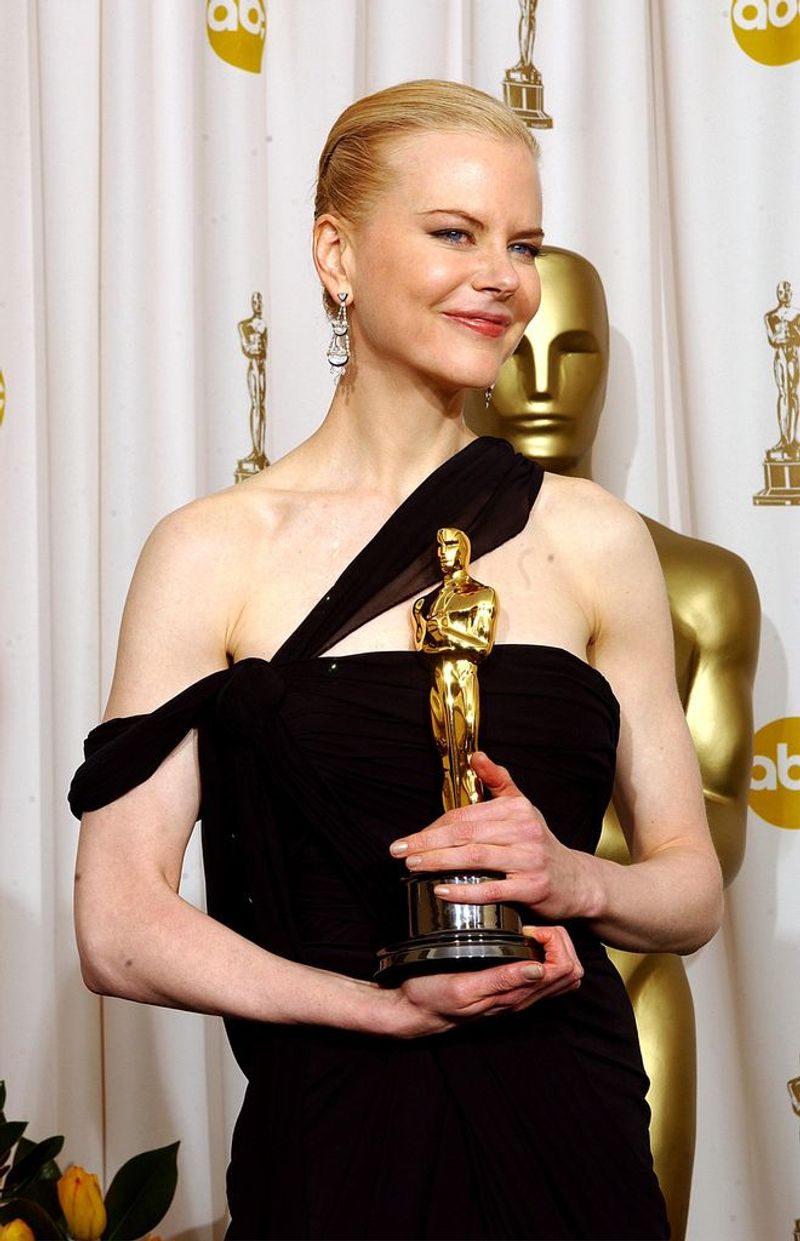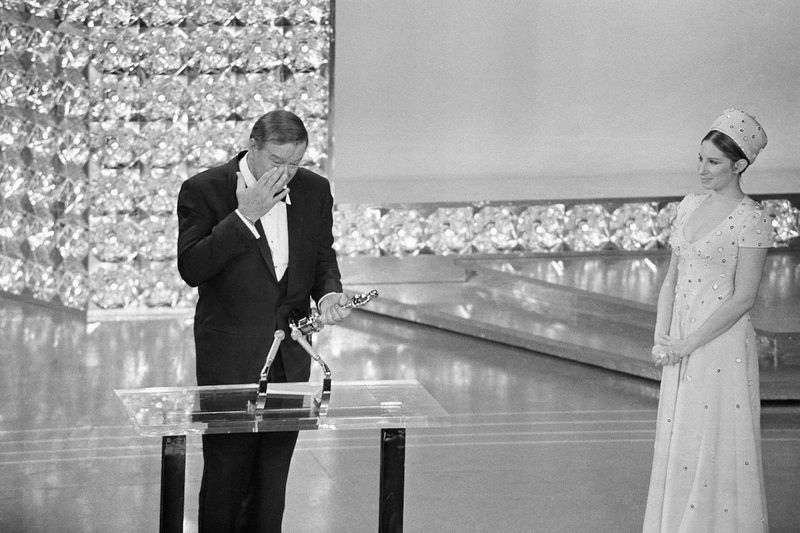The Academy Awards represent Hollywood’s highest honor, but sometimes even the Oscars get it wrong. Many actors have received the coveted golden statue for performances that weren’t necessarily their best work.
Often these wins seem like makeup calls for previously overlooked roles or lifetime achievement awards in disguise. Here’s a look at 21 talented performers who finally got their Oscar, just not for the right movie.
1. Al Pacino’s Belated Recognition
The legendary actor finally clutched Oscar gold for his over-the-top performance as blind Lieutenant Colonel Frank Slade in “Scent of a Woman.” Many film buffs consider this win a consolation prize for overlooking his superior work in classics like “The Godfather” and “Dog Day Afternoon.” Pacino’s subtle, restrained acting in those earlier films demonstrated far more nuance than his scenery-chewing “Hoo-ah!” moments that impressed Academy voters in 1992. The win felt like Hollywood saying, “We’re sorry we ignored you before.” His portrayal of Michael Corleone remains one of cinema’s most measured character evolutions, making the timing of his actual win all the more ironic.
2. Denzel Washington’s Villainous Victory
Washington’s corrupt cop Alonzo Harris in “Training Day” earned him Best Actor in 2001, but cinema historians frequently point to his transformative work as civil rights leader Malcolm X as his defining performance. His Oscar-winning role allowed him to play against type as a charismatic villain. The intensity Washington brought to Malcolm X created a fully realized portrait that transcended mere impersonation. Director Spike Lee publicly expressed disappointment when the Academy passed over this towering achievement. Many view Washington’s “Training Day” Oscar as the Academy making amends for their previous oversight, rewarding a great actor for a flashier, less substantial role than his historical masterpiece.
3. Kate Winslet’s Delayed Honor
Winslet’s sixth nomination finally brought victory for “The Reader,” playing a former Nazi guard with a secret. Meanwhile, her emotionally raw work in “Eternal Sunshine of the Spotless Mind” and iconic Rose in “Titanic” went unrewarded despite deeper cultural impact. The British actress herself seemed surprised by which performance finally broke her losing streak. Her portrayal of Hanna Schmitz felt like a traditional Oscar-bait role—accented, dramatic, and in a Holocaust-themed film. Critics widely agree her vulnerable, multilayered performance as Clementine in “Eternal Sunshine” showcased more range and originality than the solemn, restrained work that eventually won her the statuette.
4. Leonardo DiCaprio’s Endurance Test
After five previous nominations, DiCaprio finally won for enduring brutal filming conditions in “The Revenant.” The award celebrated his commitment to suffering for his art more than the performance itself. He ate raw bison liver and slept inside animal carcasses during production. Meanwhile, his magnetic work in “The Wolf of Wall Street” showcased unexpected comedic timing and physical comedy. His portrayal of Howard Hughes in “The Aviator” demonstrated remarkable psychological depth. The narrative around his win focused heavily on the physical challenges rather than acting nuance. This exemplifies the Academy’s tendency to reward visible suffering and transformation over subtle character work that actually demands greater skill.
5. Paul Newman’s Consolation Prize
Newman returned to the role of pool hustler Fast Eddie Felson in “The Color of Money” and finally won his first competitive Oscar after seven previous nominations. The performance was solid but lacked the iconic status of his work in “Cool Hand Luke” or the original “The Hustler.” His defiant prisoner in “Cool Hand Luke” became a cultural touchstone with unforgettable moments like the egg-eating contest and the line “What we’ve got here is failure to communicate.” Newman brought a wounded dignity to these earlier roles that defined his screen persona. The Academy essentially admitted the make-up nature of the award by giving him an Honorary Oscar in 1986, the same year he won for “The Color of Money.”
6. Gary Oldman’s Makeup and Mimicry
Oldman disappeared under prosthetics to play Winston Churchill in “Darkest Hour,” finally winning after decades of transformative performances. The Academy loves physical transformations, but his subtle work as George Smiley in “Tinker Tailor Soldier Spy” showcased more acting skill with less artificial assistance. As Smiley, Oldman conveyed volumes through microexpressions and calculated stillness. His performance required viewers to lean in and pay attention rather than marvel at makeup effects. Oldman’s Churchill joined the long tradition of actors winning for playing real historical figures rather than creating original characters. His impressive filmography includes dozens of more inventive performances that went unrecognized by Oscar voters.
7. Julianne Moore’s Illness Performance
Moore finally secured her Oscar portraying a linguistics professor with early-onset Alzheimer’s in “Still Alice.” The Academy has a history of rewarding actors who play characters with illnesses or disabilities, sometimes overlooking more complex performances. Her work in Todd Haynes’ “Far From Heaven” as a 1950s housewife discovering her husband’s homosexuality while developing feelings for her Black gardener required extraordinary emotional restraint. The period melodrama showcased Moore’s ability to convey repressed emotion beneath a polished surface. Similarly, her porn star character in “Boogie Nights” created a touching portrait of misplaced maternal instincts. Both performances demonstrated greater range than the straightforward sympathy generated by her Alzheimer’s portrayal.
8. Sandra Bullock’s Heartwarming Upset
America’s sweetheart finally won gold for “The Blind Side,” playing real-life Southern mom Leigh Anne Tuohy who adopts a homeless teen. The feel-good biopic earned Bullock her statue despite criticism about white savior narratives. Just four years later, her work in Alfonso Cuarón’s “Gravity” demonstrated remarkable technical skill. Acting mostly alone against green screens, Bullock conveyed genuine terror, grief, and determination while handling complex choreography in simulated zero gravity. The contrast highlights the Academy’s preference for heartwarming true stories over technical acting challenges. “The Blind Side” gave Bullock a showy Southern accent and inspirational speeches, while “Gravity” required her to carry an entire film through subtle emotional shifts under difficult filming conditions.
9. Jeff Bridges’ Overdue Recognition
The Dude finally abided with Oscar voters when Bridges won for playing alcoholic country singer Bad Blake in “Crazy Heart.” The performance hit familiar notes in the tortured-artist-finds-redemption genre that Academy members consistently reward. Meanwhile, his iconic role as The Dude in “The Big Lebowski” created a cultural phenomenon that continues to inspire festivals, merchandise, and even a religion called Dudeism. The character’s laid-back philosophy and Bridges’ perfectly calibrated performance created an enduring archetype. His alien visitor in “Starman” also demonstrated remarkable physical control as he portrayed a being learning to inhabit a human body. Both performances required more creativity and risk-taking than his eventual Oscar-winning role.
10. Russell Crowe’s Gladiatorial Glory
Crowe’s commanding presence as Roman general Maximus in “Gladiator” won hearts and votes, but his work the previous year deserved the gold. His portrayal of whistleblower Jeffrey Wigand in “The Insider” showcased remarkable subtlety as an ordinary man facing extraordinary pressure. The Australian actor gained weight and adopted nervous mannerisms to embody the corporate scientist who risked everything to expose Big Tobacco. His performance conveyed the crushing anxiety of a man torn between conscience and self-preservation. “Gladiator” gave Crowe memorable lines and heroic moments, but required less nuance than the quiet desperation he brought to “The Insider.” The Academy chose the sword-wielding warrior over the conflicted whistleblower in a classic case of spectacle over substance.
11. Reese Witherspoon’s Musical Triumph
Witherspoon’s turn as June Carter Cash in “Walk the Line” showcased her singing abilities and charm, earning her Oscar gold. The performance was certainly accomplished, but lacked the razor-sharp brilliance of her work as Tracy Flick in Alexander Payne’s “Election.” As the ambitious high school overachiever, Witherspoon created a character both monstrous and sympathetic. Her tightly wound performance balanced comedy and pathos while avoiding easy caricature. “Election” demonstrated Witherspoon’s willingness to play deeply unlikable characters with complete commitment. The Academy typically rewards actors playing historical figures (like June Carter) over original characters, especially when the role includes an additional skill like singing or playing an instrument.
12. Renée Zellweger’s Comeback Story
Zellweger’s portrayal of Judy Garland in her final performing years earned a Best Actress win after a six-year Hollywood hiatus. The role checked Oscar-bait boxes: playing a real person, performing songs, and depicting suffering. Years earlier, her work in “Chicago” showcased more impressive triple-threat talents as she sang, danced, and acted with spectacular energy. Her supporting turn in “Cold Mountain” demonstrated remarkable transformation into a tough, no-nonsense farm woman – a complete departure from her usual screen persona. While her Garland impersonation was technically proficient, it lacked the originality of her earlier work. The Academy seemed more impressed by the comeback narrative and the challenge of portraying a beloved icon than by the performance itself.
13. Tommy Lee Jones’ Manhunter Moment
Jones won Best Supporting Actor as the relentless U.S. Marshal Sam Gerard hunting Harrison Ford in “The Fugitive.” While entertaining, the role primarily required his trademark gruffness rather than emotional depth. His devastating work in the miniseries “Lonesome Dove” as Texas Ranger Captain Woodrow Call showcased a lifetime of regret beneath a stoic exterior. Though television, this performance is widely considered his finest character study. Later, his heartbreaking portrayal of a father searching for his missing soldier son in “In the Valley of Elah” demonstrated remarkable restraint and quiet grief. The Academy chose to reward Jones for his most commercial, accessible performance rather than his more challenging work that required viewers to read between the lines.
14. Cuba Gooding Jr.’s Career Peak
“Show me the money!” became the catchphrase that launched Gooding Jr. to Oscar glory as football player Rod Tidwell in “Jerry Maguire.” His energetic performance captured hearts, but his subsequent career suggests the Academy jumped the gun in anointing him. His earlier work in “Boyz n the Hood” as Tre Styles showed more dramatic potential and depth. Director John Singleton coaxed a thoughtful performance from the young actor that balanced vulnerability and strength. Gooding Jr.’s Oscar win represents a cautionary tale about rewarding actors too early in their careers. While his Tidwell was undeniably charismatic, the win set expectations his later roles couldn’t meet. The contrast between his Oscar moment and subsequent direct-to-video films creates one of Hollywood’s more perplexing career trajectories.
15. Marisa Tomei’s Surprise Victory
Tomei’s win for playing brash Brooklyn auto expert Mona Lisa Vito in “My Cousin Vinny” shocked Hollywood. The comedy performance defeated veterans Judy Davis, Vanessa Redgrave, Miranda Richardson, and Joan Plowright, sparking unfounded rumors that presenter Jack Palance had read the wrong name. While her comedic timing was impeccable, the lightweight role seemed incongruous among typically serious Oscar-winning performances. The Academy rarely rewards comedy, making her victory all the more unusual. Tomei later proved her dramatic abilities with nominations for “In the Bedroom” and “The Wrestler,” silencing early critics. Her win represents one of Oscar’s rare moments of recognizing that comedy requires just as much skill as drama, even if the timing of the recognition raised eyebrows.
16. Judi Dench’s Royal Eight Minutes
Dench claimed Oscar gold for just eight minutes of screen time as Queen Elizabeth I in “Shakespeare in Love.” Her commanding presence made every second count, but the brevity of the role raised questions about whether the award recognized this specific performance or her overall excellence. The British acting dame had already established herself as one of the greatest performers of her generation through decades of stage work and films. Many viewed her win as an acknowledgment of her illustrious career rather than this particular cameo. The Academy has occasionally awarded brief performances (Beatrice Straight won for five minutes in “Network”), but Dench’s victory stands out as a prime example of reputation outweighing actual screen time. Her regal bearing and withering glances made a memorable impression despite minimal opportunity.
17. Christopher Plummer’s Late-Career Recognition
At 82, Plummer became the oldest acting Oscar winner for his role as a man coming out late in life in “Beginners.” The performance was charming and poignant, but arrived after decades of superior work had gone unrecognized. His devastating portrayal of Mike Wallace in “The Insider” captured the legendary journalist’s complex mix of integrity and vanity. As Leo Tolstoy in “The Last Station,” Plummer embodied the Russian literary giant with remarkable vitality and inner conflict. The Academy often rewards veteran actors with “career Oscars” disguised as recognition for current work. Plummer’s case is particularly striking since he delivered some of his finest performances in his 70s and 80s, making his belated recognition feel simultaneously deserved yet mistimed.
18. Adrien Brody’s Pianist Upset
Brody became the youngest Best Actor winner at 29 for his haunting portrayal of Holocaust survivor Władysław Szpilman in “The Pianist.” His win came as a surprise against powerhouse nominees Daniel Day-Lewis (“Gangs of New York”) and Jack Nicholson (“About Schmidt”). Director Roman Polanski pushed Brody to physical extremes, having him lose significant weight and learn to play Chopin pieces. The resulting performance was undeniably powerful, showing a man clinging to humanity in inhumane circumstances. The debate isn’t whether Brody deserved recognition, but whether his less established career should have trumped Day-Lewis’s transformative work as Bill the Butcher. The Academy occasionally rewards newcomers over veterans, perhaps seeing more opportunities to honor established stars in the future.
19. Nicole Kidman’s Prosthetic Transformation
Kidman’s Oscar came for wearing a prosthetic nose to play Virginia Woolf in “The Hours.” The physical transformation and accent work impressed voters, but her nose became the performance’s most discussed aspect, overshadowing her acting choices. Her work in “To Die For” as ambitious weather girl Suzanne Stone showcased her ability to blend comedy and sociopathy. As courtesan Satine in “Moulin Rouge!” she delivered a tour-de-force combining singing, dancing, comedy, and heartbreaking vulnerability. The Academy’s fascination with physical transformations often rewards actors who look least like themselves. Kidman’s Woolf was certainly accomplished, but lacked the originality and daring of her earlier work where she created memorable characters without relying on prosthetics.
20. Roberto Benigni’s Controversial Comedy
Italian filmmaker Benigni made Oscar history by directing himself to a Best Actor win for “Life Is Beautiful,” a Holocaust comedy-drama that divided critics. His exuberant acceptance speech, climbing over seats and declaring he wanted to “make love to everybody,” became more memorable than the performance itself. The competition that year included Ian McKellen’s nuanced portrayal of director James Whale in “Gods and Monsters” and Edward Norton’s complex neo-Nazi in “American History X.” Both delivered performances with more psychological depth. Benigni’s win represents the Academy occasionally rewarding foreign performers who break through to American audiences. The victory seemed to celebrate the film’s audacious concept of finding humor amid tragedy more than the specific acting achievements.
21. John Wayne’s Golden Years Tribute
Hollywood’s most famous cowboy finally lassoed an Oscar playing one-eyed Marshal Rooster Cogburn in “True Grit.” The role allowed Wayne to poke fun at his tough-guy image while showcasing his underrated comedic timing. Film historians widely consider his searing performance as obsessive Ethan Edwards in John Ford’s “The Searchers” to be his artistic pinnacle. Wayne’s portrayal of a man consumed by hatred and revenge revealed psychological complexities absent from his more straightforward heroic roles. The Academy has a long tradition of giving delayed recognition to icons late in their careers. Wayne’s Oscar for “True Grit” represents a classic example of honoring an actor’s cultural significance and lifetime contribution to cinema rather than identifying their greatest artistic achievement.


